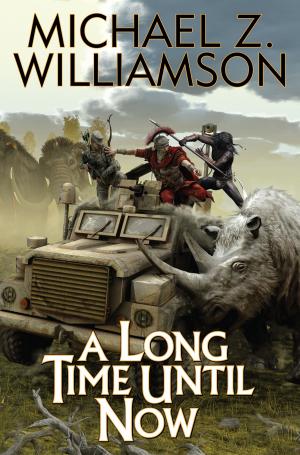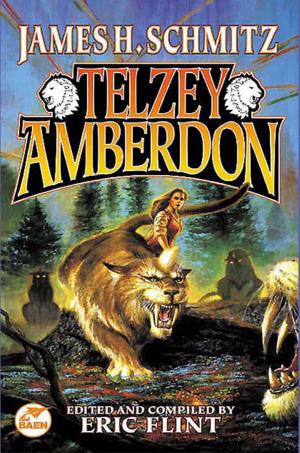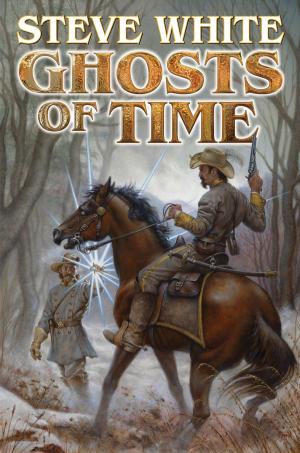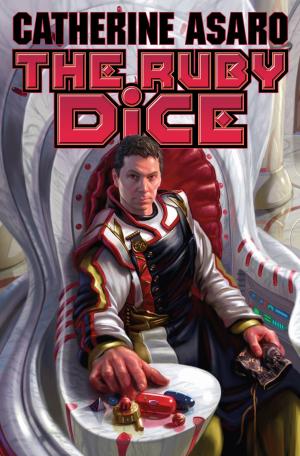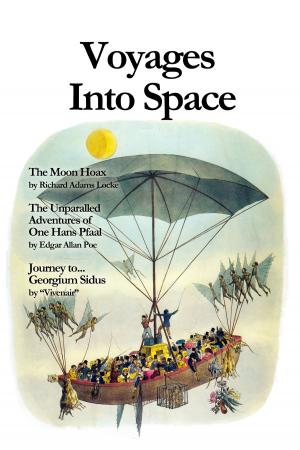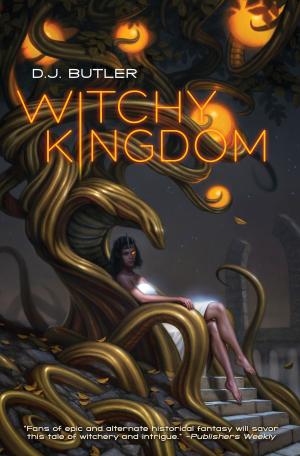| Author: | Eric Flint | ISBN: | 9781618246721 |
| Publisher: | Baen Books | Publication: | June 1, 2008 |
| Imprint: | Baen Publishing Enterprises | Language: | English |
| Author: | Eric Flint |
| ISBN: | 9781618246721 |
| Publisher: | Baen Books |
| Publication: | June 1, 2008 |
| Imprint: | Baen Publishing Enterprises |
| Language: | English |
In Paula Goodlett and Gorg Huff's "Poor Little Rich Girls," we follow the continuing adventures of the teenage tycoons begun by Huff in "The Sewing Circle" (Gazette #1) and "Other People's Money" (Gazette #3). The focus in this story, however, is on the younger siblings—the so-called Barbie Consortium—and their down-timer associates and enemies.
Jose Clavell's "Magdeburg Marines" and Ernest Lutz and John Zeek's "Elizabeth" depict the early days of two military units after the Ring of Fire: a reborn U.S. Marine Corps trying to adapt to new circumstances, and the First Railway Company, formed to provide logistics using a combination of up-time and down-time methods and technology.
David Carrico's "Heavy Metal Music" continues the story of the interaction between up-time and down-time musicians that he began in last issue's "The Sound of Music."
In other stories:
The fourth volume of the Gazette also contains factual articles dealing with the development of an oil industry, advances in textile and garment manufacture, possible uses of biodiesel technology, and differing views on the prospects of creating a machine gun using the resources and technology available after the Ring of Fire.
At the publisher's request, this title is sold without DRM (Digital Rights Management).
Jose Clavell's "Magdeburg Marines" and Ernest Lutz and John Zeek's "Elizabeth" depict the early days of two military units after the Ring of Fire: a reborn U.S. Marine Corps trying to adapt to new circumstances, and the First Railway Company, formed to provide logistics using a combination of up-time and down-time methods and technology.
David Carrico's "Heavy Metal Music" continues the story of the interaction between up-time and down-time musicians that he began in last issue's "The Sound of Music."
In other stories:
- —A German craftsman blackballed by guild masters gets a new start in Karen Bergstralh's "One Man's Junk."
—Grantville has to deal with the tragic accidental deaths of several high school graduates in Kerryn Offord's "The Class of '34."
—In Virginia DeMarce's "'Til We Meet Again," a widowed up-timer responds to her husband's death by joining the faculty in the newly-established women's college in Quedlinburg.
—Julie Sims' ex-boyfriend finds a new romance in Russ Rittgers' "Chip's Christmas Gift."
—in Dan Robinson's "Dice's Drawings," an American retiree finds a new life and maybe a new love in seventeenth century Germany.
The fourth volume of the Gazette also contains factual articles dealing with the development of an oil industry, advances in textile and garment manufacture, possible uses of biodiesel technology, and differing views on the prospects of creating a machine gun using the resources and technology available after the Ring of Fire.
At the publisher's request, this title is sold without DRM (Digital Rights Management).
In Paula Goodlett and Gorg Huff's "Poor Little Rich Girls," we follow the continuing adventures of the teenage tycoons begun by Huff in "The Sewing Circle" (Gazette #1) and "Other People's Money" (Gazette #3). The focus in this story, however, is on the younger siblings—the so-called Barbie Consortium—and their down-timer associates and enemies.
Jose Clavell's "Magdeburg Marines" and Ernest Lutz and John Zeek's "Elizabeth" depict the early days of two military units after the Ring of Fire: a reborn U.S. Marine Corps trying to adapt to new circumstances, and the First Railway Company, formed to provide logistics using a combination of up-time and down-time methods and technology.
David Carrico's "Heavy Metal Music" continues the story of the interaction between up-time and down-time musicians that he began in last issue's "The Sound of Music."
In other stories:
The fourth volume of the Gazette also contains factual articles dealing with the development of an oil industry, advances in textile and garment manufacture, possible uses of biodiesel technology, and differing views on the prospects of creating a machine gun using the resources and technology available after the Ring of Fire.
At the publisher's request, this title is sold without DRM (Digital Rights Management).
Jose Clavell's "Magdeburg Marines" and Ernest Lutz and John Zeek's "Elizabeth" depict the early days of two military units after the Ring of Fire: a reborn U.S. Marine Corps trying to adapt to new circumstances, and the First Railway Company, formed to provide logistics using a combination of up-time and down-time methods and technology.
David Carrico's "Heavy Metal Music" continues the story of the interaction between up-time and down-time musicians that he began in last issue's "The Sound of Music."
In other stories:
- —A German craftsman blackballed by guild masters gets a new start in Karen Bergstralh's "One Man's Junk."
—Grantville has to deal with the tragic accidental deaths of several high school graduates in Kerryn Offord's "The Class of '34."
—In Virginia DeMarce's "'Til We Meet Again," a widowed up-timer responds to her husband's death by joining the faculty in the newly-established women's college in Quedlinburg.
—Julie Sims' ex-boyfriend finds a new romance in Russ Rittgers' "Chip's Christmas Gift."
—in Dan Robinson's "Dice's Drawings," an American retiree finds a new life and maybe a new love in seventeenth century Germany.
The fourth volume of the Gazette also contains factual articles dealing with the development of an oil industry, advances in textile and garment manufacture, possible uses of biodiesel technology, and differing views on the prospects of creating a machine gun using the resources and technology available after the Ring of Fire.
At the publisher's request, this title is sold without DRM (Digital Rights Management).



